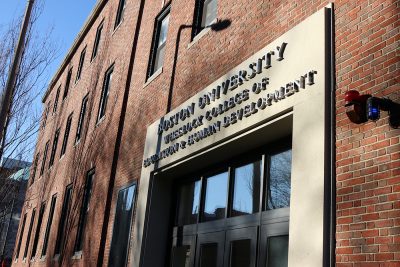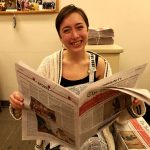
Boston University’s school of education introduced a new program this summer for those looking to learn more about policy in education and become leaders in the field.
Wheelock College of Education and Human Development invited 26 educators to its first cohort of Educational Leadership and Policy Studies program, which has been running since July.
This professional Doctor of Education is a terminal degree — the highest a person can obtain in their given field — designed for educators who want to pursue a leadership or policy role in K-12 education.
Wheelock ad interim Dean David Chard said this program marks an important milestone for BU.
“It’s the first instance where BU has carved out a particular professional doctorate, specifically for leadership in education,” Chard said.
The EdD will take three years to complete, he said, and the school will recruit a new cohort every two years.
At the end of the program, students will work in teams to produce dissertations about, for example, a particular focal point within K-12 education, Chard said.
Bob Weintraub, creator and director of the program, said it has been in the works for about four years and through three different deans. The program started with an intensive two-week summer institute and continued with two courses this Fall.
Though BU has had EdD programs in the past, the program was in “moratorium” when Weintraub came to BU in 2014, he said.
Weintraub, who received his own doctorate in education at BU in the mid-1980s, said establishing the program again was a goal of his.
“A leadership program does not have any credibility if they don’t have a doctoral program,” Weintraub said. “In order for us to maintain our national credibility, I said we needed a doctoral program.”
The current students are all active educators, Weintraub said, who take the program alongside work. He said making the program accessible was key.
“I wanted to recreate an environment that works for working people,” Weintraub said.
The program is taught by active or past practitioners in the field, including three full-time faculty members — Weintraub, long-time principal Pipier Smith-Mumford and former superintendent Stacy Scott — along with some adjunct faculty.
Weintraub said this doctorate program is intentionally collaborative to reflect real leadership, which, to him, is not about telling people what to do, but about working with other stakeholders.
“It’s designed from the very beginning to get people to understand that leadership is not about you solitarily making decisions,” Weintraub said. “Leadership is about working well with people.”
Dominique Ferdinand, a kindergarten teacher in Brookline, said she joined the program after noticing how policy changes affected her students during her 23 years of teaching.
“I’ve seen levels of stress that I’ve never seen before at the early childhood level,” Ferdinand said. “I’ve never seen kindergarteners being stressed or not feeling good about themselves, or being nervous, or not feeling good about being a learner.”
Ferdinand said she dedicates every spare moment to the program.
“When I go to my EdD class,” she said, “I’m really feeding my soul.”
The social justice course, Ferdinand added, has already led her to make concrete changes in her own classroom, including an update to her classroom library to reflect the diversity of her class.
“I don’t have to wait until I graduate in three years to make change,” Ferdinand said. “I’m doing it right now, and that’s the best part of the program.”
Ferdinand said she cherishes her cohort’s support and diversity.
“When I take education classes, I’m usually a minority in the group,” she said. “It’s been really refreshing to be among a group of people who are all dedicated to changing education for the better.”
Ferdinand said her “future is infinite,” and she can see herself wearing any number of hats after finishing out the program, such as school principal, policymaker or college instructor. Ferdinand said she has big dreams for the rest of her cohort as well.
“If just the 26 of us, we can think of so many ways to change things to make a difference, there’s hope,” she said. “There’s hope for our students. There’s hope for the world to be a better place.”














